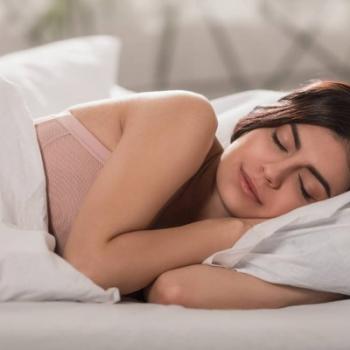Sweet Dreams

If someone asks me, “Which is most important, diet or exercise? My response would be, “neither.” I know that may sound strange, but once you delve into the science of sleep, you realize that unless you are getting enough sleep, it will be much harder to follow a healthy diet, and your body will not repair the way it should after a workout. If you are in the process of learning a new skill or studying new material, a good night sleep will help you retain the information or skill you are learning. We also process emotions during sleep and we can deal with emotional situations much better when we have slept well. Sleep is vital and deserves to be a priority.
Currently, 45% percent of Americans say that poor sleep or insufficient sleep has a negative effect on their lives. Sleep is not a passive state as repair and regeneration take place during sleep. Proper sleep is critical for our physical, emotional and mental health. If you would like to take a deep dive into what happens during sleep, I highly recommend Mathew Walker’s book, “Why We Sleep.”
I have been very interested in the science of sleep because I have delt with chronic insomnia since my 30’s. My insomnia got worse as I got older so I sought the help of a sleep specialist, a Clinical Psychologist who is board certified in sleep medicine. I learned that the best long-term solution for many sleep disorders is a process called Cognitive Behavioral Therapy for Insomnia or CBT-I. Sleeping pills can help in the short term but they do not get at the crux of whatever is causing your sleep issue. It is like treating a chronic heart disease with meds but not addressing the behaviors that caused the heart disease. CBT-I was very helpful and I consistently use the principles I learned. I do make sleep a #1 priority because life is so much better when I am getting consistent good sleep.
When I am asked about sleep, I suggest starting with good sleep hygiene. I have listed some ideas and principles. Wishing you restful, sweet sleep!
1. Allow 8 hours of available sleep time.
2. Avoid heavy meals at night; it is better to eat a light dinner.
3. Avoid light from electronics before bed time. Light from your TV, computer and phone emit blue light which is stimulating.
4. Keep your room quiet and dark.
5. Got to bed and wake up at the same time every day, including weekends. Regular sleep times support your body’s circadian rhythm. Your circadian rhythm runs a set loop aligning with sunrise and sun set.
6. Expose yourself to bright sunlight or other bright light first thing in the morning and throughout the day to keep your circadian rhythm healthy. This will improve daytime energy, and help you sleep more soundly at night. This is especially true if you have been diagnosed with insomnia.
7. Naps can offer a terrific pick me up during the day, but keep them to no longer than 30 minutes. Your brain produces a chemical called adenosine throughout the day which is responsible for sleep drive. If you nap too long, you reduce the build-up of adenosine and that reduces you feeling sleepy at bed time.
8. Exercise for at least 30 minutes most days of the week. In people with severe insomnia, exercise helped achieve better sleep than most drugs. Just don’t exercise too close to bed time as it can be stimulating.
9. Don’t lie in bed awake for more than 20 minutes. It is better to get out of the bed, go to another room and read or do some other activity that is relaxing until you feel sleepy enough to go to bed. This was a game changer for me.
10. Avoid caffeine four to six hours before bed time.
11. Cut back, or even better, abstain from alcohol in the evenings. Though alcohol can make you sleepy, it decreases HGH (human growth hormone) which plays a role in your circadian rhythms. Alcohol also interferes with melatonin, a hormone responsible for making you drowsy around bed time.
